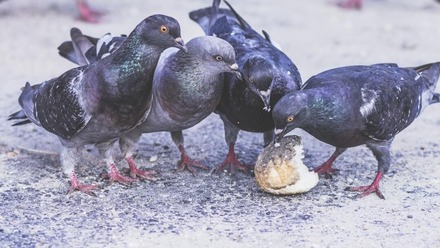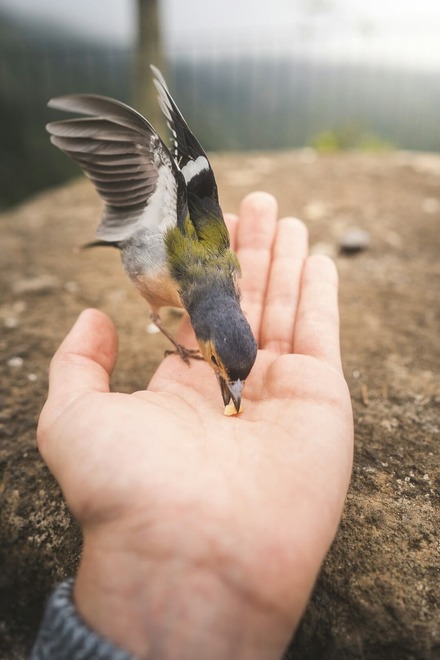This question has kept quite a number of people thinking, and asking “Can birds eat salt?“. Some say that small portions of salt are good for some birds and help them in maintaining good health whereas others give quite a number of health risks involved. In this article, we will find answers to the questions whether birds can eat salt, what effects does eating salt have and how you manage the diet of your pet bird. We invite readers to an improvement research of such essential aspects of the ownership of birds.
Bird Diet: What Comes Near to Theoretical Approaches
Just like any other animal, birds have specific dietary needs which have to have certain constituents in them. It is worth noting that the owners of birds and also the amateurs of bird watching should be concerned on what the birds feed on. Some of the important factors forming the diet of the bird are mentioned below.
- Seeds and Grains: Birds love seeds and grains which are high in fat and protein contents.
- Fruits and Vegetables: Fresh fruits and vegetables have vitamins and other minerals, which maintain and boost their health.
- Proteins: There are many species of birds that thrive on high protein food for example, bugs, beans protecting them from stagnancy.
On the contrary, avian creatures get sufficient salt from the environment hence there should be minimal common salt introduced. If there is excessive consumption of salt, health problems such as dehydration and renal problems may arise.
Here’s a quick overview of what birds typically require in their diet:
| Diet Component | Importance | Examples |
|---|---|---|
| Seeds and Grains | Energy and essential fats | Sunflower seeds, millet |
| Fruits and Vegetables | Vitamins and minerals | Apples, carrots, spinach |
| Proteins | Growth and development | Mealworms, cooked beans |
The key to comprehending the bird’s nutrition will be that you will supply them with suitable food and will steer clear of those dangerous foods like too much of salt. Health and happiness in the long run come with the right amount of salt, which birds might enjoy from time to time.

The Effects of Salt on Bird Health
Salt, the ordinary condiment we often use, is harmless to humans but has a terrible effect on birds. Getting to know these effects is very important if you are to be a bird owner or a person who enjoys birds.
With respect to the question ‘can birds eat salt?’, the answer is not so straightforward. While I usually birds obtain their salt mainly from the natural sources like plants and minerals, too much salt may cause health problems.
Key Effects of Salt on Bird Health
| Effect | Description |
|---|---|
| Dehydration | High salt intake makes birds thirsty and dehydrates them. |
| Kidney Strain | Too much salt forces the kidneys to work harder than they should, leading to kidney diseases. |
| Hypernatremia | This condition might lead to serious health problems, such as neurological disorders due to the intake of too much sodium in the blood. |
| Digestive Issues | High consumption of salt may lead to gastrointestinal disorders like diarrhea. “It is necessary to minimize sources of excess salt in your feathered friend’s diet since they are unusually sensitive to the level of sodium. |
Wild birds regulate their intake of salt themselves, but as a pet owner, it is our task to make sure their homes are well within the limits of safety. Birds can have salt, but they should have it in small amounts, as that would be what would keep them healthy and happy.
Common Myths About Birds Eating Salt
When it comes to the birds’ eating habits, there are a lot of myths flying around. In this article, we will clear some of the most common myths related to birds, especially their consumption of salt.
Myth 1: All Birds Can Safely Consume Salt
Truth: Although there is a group of birds who can handle a bit of salt, too much salt is definitely lethal for the majority of them. Just because the bird can take salt doesn’t necessarily mean it is safe to them.
Myth 2: Salt is a Necessary Mineral for All Birds
Truth: Not every bird needs salt in its minerals. Some birds take salt from other worms and insects, while others eat it. However, supplementing with salt isn’t necessary
Myth 3: Salt is Only Dangerous in Large Quantities
Truth: Even low doses of salt can be responsible for dehydration and kidney problems in some species. It is vital to find out if the particular kind of the bird you have prefers to eat salt before it will be added to their diet.
Summary Table of Salt Myths
| Myth | Reality |
|---|---|
| All birds can eat salt | Some species are sensitive to salt intake |
| Salt is necessary for all birds | Many get minerals from natural sources |
| Only large amounts are harmful | Small amounts can also be dangerous |
Understanding these myths can help bird owners ensure their pets thrive in a healthy environment. Knowledge is the key to making the right decisions on their diet!
Are Domestic Birds Allowed to Eat Salt?
Making sure that our feathered friends receive a proper diet is one of the essentials in their feeding. Birds do not eat salt, but it is still important to know how it affects their health.

Salt Intake Guidelines for Domestic Birds
- Moderation is Key: Generally, small amounts of salt are acceptable for some domestic birds. On the other hand, e.g. salt in excess bird may lead to serious health risks.
- Type of Bird Matters: The fact is that not every species has the same amount of salt tolerance. To be more specific, for example, the case of parrots and budgerigars who may tolerate sodium levels better than others.
- Natural Diet Consideration: There are many birds in the wild that consume a diet that is naturally balanced and contains only very small amounts of salt which come from the seeds and fruits.
“It’s imperative to always consult with an avian veterinarian before making any significant dietary changes.”
Suggested Sources of Salt
Here’s a quick look at appropriate sources of salt that can be given in moderation:
| Source | Description |
|---|---|
| Commercial Bird Food | Formulated to include essential nutrients including necessary minerals |
| Natural Seaweed | Provides trace minerals and salt without excess sodium |
| Mineral Blocks | Often include essential nutrients but must be provided in moderation |
In summary, while some birds can tolerate salt, it is crucial to avoid overindulgence to maintain their health. Always observe and adjust their diet accordingly!
What to Do if a Bird Eats Salt
If you think that a bird has taken in salt, you must act fast. High levels of sodium can cause excessive health concerns for serious birds, so immediate help is required for keeping them well. Here’s what you should do:
Assess the Situation:
- Pay attention to the birdails. If the bird is in distress, it may show such signs as having no energy, drinking too much, or having trouble with breathing.
Provide Fresh Water:
- Try to give them lots of clean water to reduce the amount of salt left in their systems. Birds have to drink a lot of water to prevent the salt from affecting their bodies.
Contact a Veterinarian:
- Ask an avian vet for help and tell them the whole story. Give the information of the incident, including the amount of salt that the bird might have eaten.
Monitor the Bird:
- Be vigilant and monitor the bird’s state if possible. Observe the bird for any changes in its behavior or health, and update the vet if necessary.
Here’s a quick reference table for the recommended steps:
| Action | Description |
|---|---|
| Assess the Situation | Look for signs of distress |
| Provide Fresh Water | Ensure availability of hydration |
| Contact a Veterinarian | Seek professional help immediately |
| Monitor the Bird’s Condition | Observe for changes or improvement |
Everybody should be concerned with those matters and act as soon as possible if a question like, “Can birds eat salt?” arises. It is necessary for the health safety of your pet birds to discover that birds eat salt which can be the cause of potential health risks!
Frequently Asked Questions
Can birds eat salt safely?
Birds’ bodies are not able to regulate the excess salt in the body, which can consequently lead to serious health complications. Together with the natural salts that are part of their diet, for example, the ones from fruits and seeds, the large amounts of added salt, like table salt, can be harmful. It may lead to dehydration, kidney illnesses, and even death if large doses are taken.
What types of salt are harmful to birds?
Sodium chloride (the common table salt) can be particularly harmful to birds in very large amounts. Flavored salts, such as garlic and onion salts, also pose risks. In moderation, sea salt may be less dangerous, but it should always be used carefully. It is important to not give birds any human foods that are salty, as most of them are not adapted to such high sodium levels.
What symptoms indicate that a bird has consumed too much salt?
A bird which has eaten too much salt may manifest signs like excessive thirst, lethargy, digestive problems, and trouble flying. Moreover, pay attention to alterations in conduct, e.g., a lack of appetite or strange vocalization. When these symptoms arise, it becomes essential to seek veterinary services immediately so that diagnosis and treatment can be given.
How can I provide a balanced diet for my pet bird without salt?
It is very important that your pet bird gets a balanced diet with salt minimum, which can be achieved by you by concentrating on providing fresh fruits, vegetables, and specific bird seeds or pellets that are prepared without the addition of salts. Ill-conceived items, namely processed or packaged human foods, are to be avoided as they can contain high sodium levels. You should always have fresh water nearby, which will not only help your bird to stay hydrated but also counteract any sodium absorption that may occur.
If you’re curious about other aspects of bird nutrition, you might find our article on whether birds eat eggs quite enlightening. It covers some unexpected facts about bird diets and behaviors. Check it out here: Do Birds Eat Eggs? Unexpected Facts About Bird Nutrition